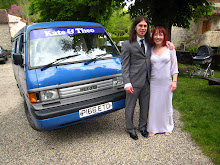I digress. Minor inconveniences aside, Poland is a very likable country, as are the Poles themselves. The beauty of places like Wrocklaw and Krakow speak for themselves. Their inclusion on the UNESCO list of world heritage sites is fully justified and they deserve to be visited by all self-respecting Poland tourists. Also on the UNESCO list is the Auschwitz-Birkenau former Nazi death camp, an unholy testament to barbarity and inhumanity on an industrial scale and a chilling, yet fascinating place to visit.

It was at Auschwitz, as we perused the various exhibitions in the former dormitories, prison blocks and sanitarium, that the courage and indomitable spirit of the Poles came through. Millions of European Jews were murdered in the death camps, but Polish Jews fared the worst, with more than 2 million of their number being slaughtered by the end of the Second World War. Many Poles were put to death merely for being Polish - the Nazis had decided they were not racially acceptable and that they could never be trusted to behave under their occupation, so they exterminated them. Thousands more Poles died at the hands of the Bolsheviks and Ukrainians. Then, at the end of WWII, came a liberation which effectively delivered Poland into the hands of her old enemy, Russia.

We looked at an outdoor exhibition in Wrocklaw celebrating the organised protests against communist repression by the Solidarity union, Polish students and the Catholic Church at the beginning of the 1980s. Despite the movement being squashed by the regime, it went underground, continued unabated and resurfaced in the '90s to finally lead Poland to true self-determination. It made an interesting counterpoint to one of Woclaw's great tourist attractions - a huge panorama painting, 115m long, of Poland's death throes as a nation state in 1794. The enemy then was Russia.
These people have a history of suffering at the hands of their more powerful neighbours, of authoritarian rule and countless atrocities, yet the thing that strikes you most about the Polish is how cheerful they are. They are constantly chatting, smiling and laughing, are generally helpful and for the most part, seem to treat life as a chance to have fun.
And they have some great quirks. Their love affair with the Fiat 126, for instance. The little car is everywhere. I have a lot of sympathy with the Poles here, because my first car happened to be a 126. They may not go very fast, but only an old-fashioned Mini comes close for cuteness.
I also love the way foreign words are "Polishized". Generally by adding "ia" or, more frequently, "y" to the end of the word. Thus you get "delicatesy", "materialy", or my favourite, "komputery". Crisps are "chipsy".
I like their little street kiosk-shops, which sell everything. I can also recommend obwarzanki, crimped bread rings similar to bagels, traditional to Krakow, sold throughout and eaten by all.
True, there is plenty of ugly industrialisation and unappealing Eastern Bloc housing developments all over Poland. And boy, do those relentless roadworks sap your strength. But overall, the country has an optimistic air and it was a pleasure to visit. Meanwhile, Theo will just have to make do with his flip-flops. Though seeing as we went from summer to autumn overnight while in Krakow, he probably wont be wearing those much either.




No comments:
Post a Comment